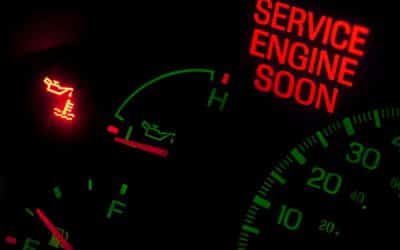Support
Looking for a solution to your car problem?
Frequently Asked Questions
How do I know if a pothole damaged my car?
Ask yourself: Is your car pulling either to the right or left while driving on a straightaway? Are you experiencing difficulty with steering the vehicle? Are your tires wearing unevenly or prematurely? Do any of your wheels have a dent? Do you have to air-up one or two of your tires frequently? If you answer yes to any of the above, then it’s possible that pothole caused some form of damage.
Why fill tires with nitrogen instead of air?
By reducing the percentage of oxygen, water vapor and other gases in your tires from 22% to 7% or lower, your tires will maintain proper pressure longer than if you use “plain old air.” For example, with 95% nitrogen in your tires, they retain optimal pressure three to four times longer.
Carbon buildup on valves - What is it & how do I clean it?
Carbon build-up is a common issue with direct-injected engines like those in modern BMW and Audi models that is an accumulation of carbon deposits on the engine cylinders’ intake valves. A carbon clean method called “walnut shell blasting” is used to safely and effectively clean carbon build-up.
What is an extended warranty & should I get one?
Nobody likes unexpected expenses for auto repairs, if you want peace of mind and like to save money, an extended warranty is a great way to accomplish both. An extended warranty is essentially a service contract between the car owner and the warranty company. According to this contract, the warranty company will pay for the covered repairs for a specific period of time. An extended warranty can help you protect yourself from unexpected repair costs.
What is the difference between Mustang Dynos vs. Dynojet Dynos?
Simply put, Dynojet numbers are usually inflated and Mustang numbers are closer to “true” horsepower numbers. Mustang dyno numbers are more accurate because it takes in to account the variables for each different car. A dynojet just measures how fast the car spins a large drum that is a certain weight and calculates HP from that. A Mustang dyno could be higher than a dynojet, but that is rare.
Why is my low coolant warning light coming on?
Your car has a floating-level which rises and falls with the coolant level in your radiator. As the level falls below a critical amount of coolant in the radiator or expansion tank, required to keep the engine from overheating, the system triggers a warning to alert you. A lot of the time, the coolant level is low because of a leak somewhere.
How long should it take for my car to cool down?
If your car is parked under the sun all day, the temperatures are most likely well over a 120 degrees Fahrenheit. Presuming your car’s A/C is working properly, it should take around 5 to 10 minutes before you can start feeling comfortable. Read more below to find out the quickest way to cool down your car’s interior.
What are the benefits of frequent oil changes?
Simply put, frequent and routine oil services for your European car are one of the most inexpensive ways to ensure that your investment has a long-living power plant under the hood. Never skip an oil change!
When should I get my oil changed?
Proactive maintenance = a healthy car!
At AUTOSCOPE, one of our core beliefs is that being proactive towards car repair and service prevents break downs and helps to reduce unexpected repair costs. By performing proactive maintenance and inspecting the vital systems on your car regularly, this will show those early warning signs that a trained professional sees on a daily basis, and can spot very quickly on a routine check.
Helpful Foreign Car Owner Articles
7 Reasons Your European Auto has High Oil Pressure
Whether it’s a Porsche or a Landrover, when your European auto has high oil pressure you should act quickly to get to the bottom of the issue. High oil pressure can be the result of another problem with your vehicle, from a blockage to a dirty filter. If left...
What to Do if Your Audi’s Head Gasket is Leaking
Head gasket problems are common in some Audis. If your Audi’s head gasket is leaking, then you should get it looked at right away. A blown head gasket is a very expensive repair, so it’s much better to fix your head gasket before the problem gets worse. Certain Audis...
How Regular Vehicle Maintenance Saves You Money
We know that it can be hard to schedule your vehicle maintenance. When life is busy, getting a check-up for your car can seem like something you can delay without much consequence. However, avoiding your mechanic’s shop for the little things can end up costing you a...
Common Manual Transmission Issues
A manual vehicle gives you a unique driving experience, more control and (many people feel) more joy when you’re behind the wheel. However, manual transmission vehicles can also develop their own unique issues. If you own a vehicle with a manual transmission, it makes...
5 Signs It’s Time for Your BMW’s Transmission Service
Keeping your BMW’s transmission in good working order is important to keep your vehicle operating at peak performance. Hard breaking, tough turns, and bad weather conditions will all slowly affect your BMW’s transmission. Eventually, it will need service in order to...
What are the Signs of a Bad EGR Valve in Your BMW
Is your BMW equipped with an engine gas recirculation (EGR) valve? These valves are useful additions to vehicles to help reduce our greenhouse gas emissions, specifically nitrogen emissions. They also help to cool part of the engine. However, many BMW owners find that...
Do You Have Metal Shavings in Your Land Rover’s Oil?
Your engine oil is supposed to lubricate all of the hard-working parts of your Land Rover’s engine. However, it will have a significantly harder time doing that if it has metal shavings in it. If you’ve found metal shavings while changing your own oil, or you’ve been...
Are You Dealing with Oil Sludge Buildup in Your Mercedes?
Motor oil can create sludge faster than you expect. You skip an oil change and before you know it, your Mercedes has some unusual symptoms that might be stemming from oil sludge. Unusual clicking, low oil pressure, and dropping fuel economy are all signs that your...
Symptoms of Your BMW’s Failing Timing Chain
Not everyone realizes that the timing chain inside of their vehicle needs to be replaced at a minimum every 100,000 miles, and potentially in as few as 40,000 miles. As a result, there are plenty of vehicles, including BMWs, out there with a failing timing chain that...









